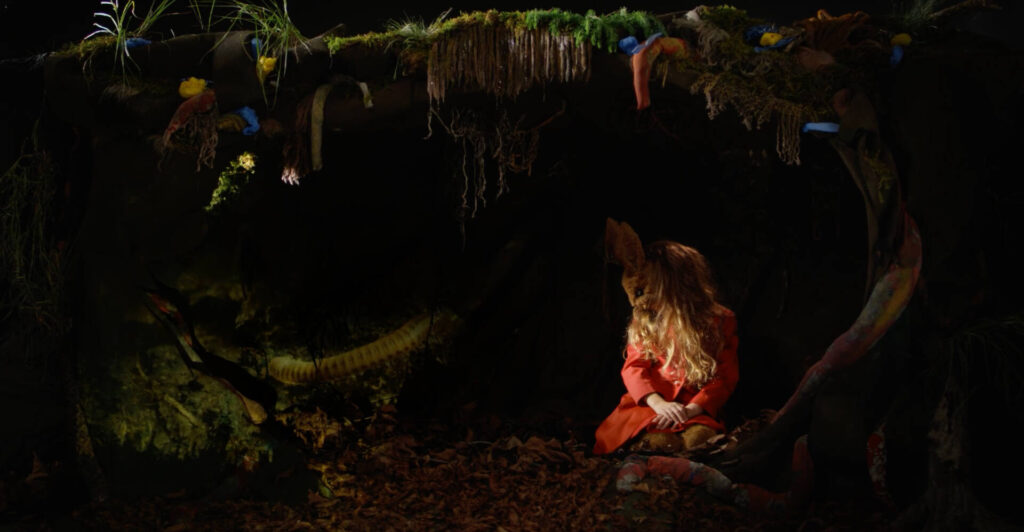During a journey by train, we listen to the tale of a woman, Dora that’s her name. She talk about her experience as the daughter of immigrants in Switzerland in the 1970s, when the law prevented the children of seasonal workers from living with their parents. For many of them, the only chance was to live as clandestine, hiding in their own houses.
A flashback takes us back to 1977, there is Dora at 8 living illegally at home. She is a child who fights boredom and loneliness by inventing a fantasy world that arises from sensory perceptions, which she combines with the memory of a fairy tale. Thus we discover that her main relationship with reality is through imagination and fantastic visions.
Thanks to archival footage, we can give a view of the society of the 1970s: the everyday life, people at work, passers-by, children going to school. This is a verisimilar story based on firsthand accounts of people who had similar experiences. The child’s experience is in conflict with the world outside, that can alternatively stimulate fear or curiosity. Dora must pay attention to don’t make any noise, because her neighbour would report her presence.
One day, curiosity pushes her to look out from the window, where her old neighbour discovers her. The first time she finally sees Switzerland is during her expulsion journey.




